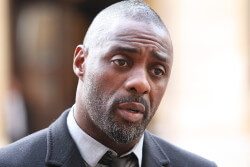Keeping the BAFTAs diverse
The nominations for the 62nd British Academy Television Awards are out and it’s a pretty eclectic mix. Black, white, gay, straight, rising star or national treasure – it seems everyone has been invited to this party.
Of course, diversity is never a bad thing. But combine the diversification of this list with this year’s #oscarssowhite controversy, and to some, it may seem contrived. These are awards of merit, and as a pro-diversity meritocratic, I’d rather minorities were honoured solely for the quality of their work. Thankfully, this seems to be the case.

Showing diversity: Romesh Ranganathan is nominated for a BAFTA. Imgage: Flickr/ Rory James
Romesh Ranganathan is nominated for Asian Provocateur: a docu-comedy which illustrates the difficulty that many second-generation immigrants, including myself, experience when trying to connect with their non-British heritage. Ben Whishaw is up for Best Actor for London Spy. Whishaw is a slight, softly-spoken, openly gay actor who hardly fulfils the stereotype of the typical leading man. Yet, he has still managed to gain recognition for his role as a gay man whose partner is murdered while working for the Secret Intelligence Service. Wheelchair user, Ruth Madeley is also nominated for the well-received drama Don’t Take My Baby. She plays a woman with a muscle-wasting disease whose parenting capabilities are under the scrutiny of the local council.
For me, it’s Cyril Nri’s Best Supporting Actor nod that puts the integrity of the nomination process into question.
Nri plays a black, middle-aged, gay man who abandons a long-term, sexless relationship and embarks upon an ill-advised pursuit of a clearly unbalanced straight man, who eventually murders him.
His character, Lance is a pathetic, inconsistent and unlikeable character whose behaviour Nri never manages to rationalise or present sympathetically. He plays each scene with the required emotion, but is never able to portray Lance as motivated by anything other than the script. I can’t help but wonder whether the Academy has allowed the unprecedented nature of this role and a need to appear more inclusive to overshadow the quality of the actual performance.

Idris Elba, King of British Television. Image: Flickr/ DFID-UK Department for International Development
Despite this, BAFTA has still managed to honour its usual suspects. Idris Elba and Sheridan Smith continue their reign as King and Queen of British television, while Mark Rylance is looking to become the most decorated British actor of the year. Graham Norton and Stephen Fry remain dominant forces in Entertainment, and what would a Documentary category be without Sir David Attenborough?
Personal favourites? I’ve got my fingers crossed for Suranne Jones and Miranda Hart.
Suranne Jones has been one of the unsung heroes of British drama ever since she burst onto our screens in 2000 as Coronation Street’s Karen McDonald. She’s since shed her soap-star skin and stolen the show in Jonathan Harvey’s Beautiful Thing in the West End and ITV’s Scott and Bailey. Having seen her on stage myself, I feel I can say with some authority that it’s high time she received this kind of recognition for her lead role in Doctor Foster.
Finally, for the best part of a decade, Miranda Hart has been the undisputed leading lady of British comedy. She’s won British Comedy Awards, written a best-selling book and mounted a nationwide arena tour, and I think it would be rather fitting to see her win a BAFTA for the finale of her loveable sitcom.
The British Academy has succeeded in honouring a diverse group of people for a diverse selection programs, which reflect the diversity of the audiences who tune in to watch them.
Regardless of motive, and despite some questionable choices, what is unmistakeable is the sheer quality of the nominees. And as a pro-diversity meritocratic, I suppose I can’t really complain.

Comments